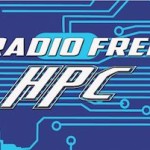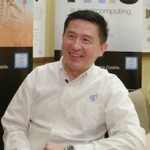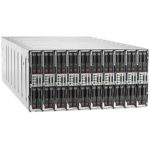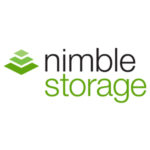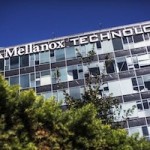Kimberly Keeton from HPE gave this talk at the MSST Conference. “Data growth and data analytics requirements are outpacing the compute and storage technologies that have provided the foundation of processor-driven architectures for the last five decades. This divergence requires a deep rethinking of how we build systems, and points towards a memory-driven architecture, where memory is the key resource and everything else, including processing, revolves around it.
Radio Free HPC Looks at the TPU2 TensorFlow Processing Unit
In this podcast, the Radio Free HPC team looks at the announcements coming from Google IO conference. Of particular interest was their second-generation TensorFlow Processing Unit (TPU2). We’ve also got news on the new OS/2 operating system, Quantum Computing, and the new Emerging Woman Leader in Technical Computing Award.
HPE Introduces the World’s Largest Single-memory Computer
Hewlett Packard Enterprise today introduced the world’s largest single-memory computer, the latest milestone in The Machine research project. “The prototype unveiled today contains 160 terabytes (TB) of memory, capable of simultaneously working with the data held in every book in the Library of Congress five times over—or approximately 160 million books. It has never been possible to hold and manipulate whole data sets of this size in a single-memory system, and this is just a glimpse of the immense potential of Memory-Driven Computing.”
Memory Driven Computing in the Spotlight at MSST Conference Next Week
The MSST Mass Storage Conference in Silicon Valley is just a few days away, and the agenda is packed with High Performance Computing topics. In one of the invited talks, Kimberly Keeton from Hewlett Packard Enterprise speak on Memory Driven Computing. We caught up Kimberly to learn more.
Agenda Posted for HP-CAST at ISC 2017
Hewlett Packard Enterprise has posted their Preliminary Agenda for HP-CAST. As HPE’s user group meeting for high performance computing, the event takes place June 16-17 in Frankfurt, just prior to ISC 2017. “The High Performance Consortium for Advanced Scientific and Technical (HP-CAST) computing users group works to increase the capabilities of Hewlett Packard Enterprise solutions for large-scale, scientific and technical computing. HP-CAST provides guidance to Hewlett Packard Enterprise on the essential development and support issues for such systems. HP-CAST meetings typically include corporate briefings and presentations by HPE executives and technical staff (under NDA), and discussions of customer issues related to high-performance technical computing.”
Dr. Eng Lim Goh presents: HPC & AI Technology Trends
Dr. Eng Lim Goh from Hewlett Packard Enterprise gave this talk at the HPC User Forum. “SGI’s highly complementary portfolio, including its in-memory high-performance data analytics technology and leading high-performance computing solutions will extend and strengthen HPE’s current leadership position in the growing mission critical and high-performance computing segments of the server market.”
HPE Supercomputer to Power Chemical Research at BASF
Today Hewlett Packard Enterprise announced plans to deploy one of the world’s largest supercomputers for industrial chemical research at BASF’s Ludwigshafen headquarters. Based on the latest generation of HPE Apollo 6000 systems, the new supercomputer will drive the digitalization of BASF’s worldwide research. “The new supercomputer will promote the application and development of complex modeling and simulation approaches, opening up completely new avenues for our research at BASF,” said Dr. Martin Brudermueller, Vice Chairman of the Board of Executive Directors and Chief Technology Officer at BASF.
HPE to Acquire Nimble Storage
Today Hewlett Packard Enterprise announced an agreement to acquire Nimble Storage, the California-based provider of predictive all-flash and hybrid-flash storage solutions. HPE will pay $12.50 per share in cash, representing a net cash purchase price at closing of $1.0 billion. In addition to the purchase price, HPE will assume or pay out Nimble’s unvested equity awards, with a value of approximately $200 million at closing. “Nimble Storage’s portfolio complements and strengthens our current 3PAR products in the high-growth flash storage market and will help us deliver on our vision of making Hybrid IT simple for our customers,” said Meg Whitman, President and CEO, Hewlett Packard Enterprise. “And, this acquisition is exactly aligned with the strategy and capital allocation approach we’ve laid out. We remain focused on high-growth and higher-margin segments of the market.”
Mellanox ConnectX-5 Sets DPDK Performance Record with 100Gb/s Ethernet
“The I/O intensive nature of the Virtualized Network Functions (VNFs) including virtual Firewall, virtual Evolved Packet Core (vEPC), virtual Session Border Controller (vSBC), Anti-DDoS and Deep Packet Inspection (DPI) applications have posed significant challenges to build cost-effective NFV Infrastructures that meet packet rate, latency, jitter and security requirements. Leveraging its wealth of experience in building high-performance server/storage I/O components and switching systems for High Performance Computing, Hyperscale data centers, and telecommunications operators, Mellanox has the industry’s broadest range of intelligent Ethernet NIC and switch solutions; spanning interface speeds from 10, 25, 40, 50 to 100Gb/s.”


